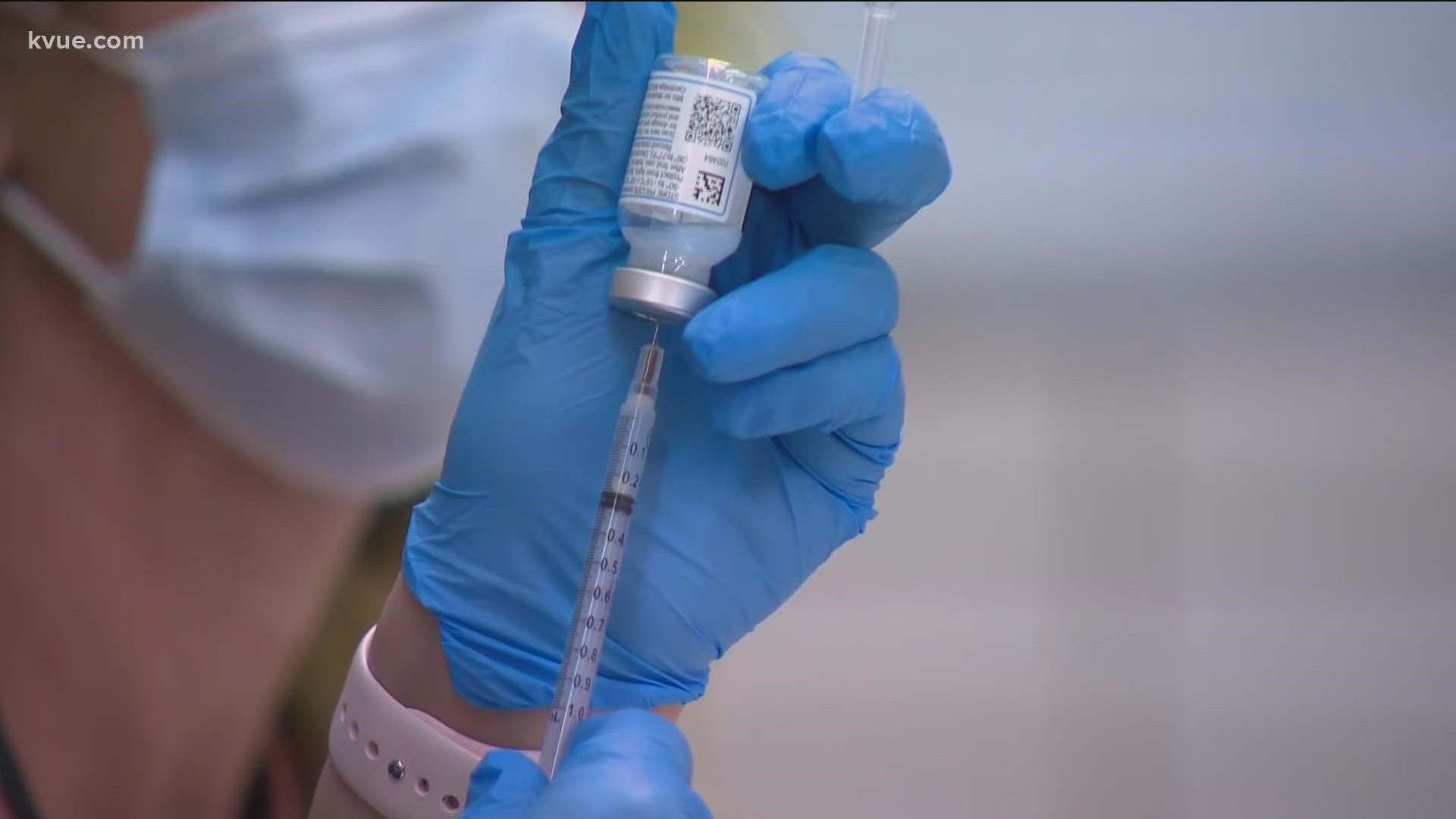AUSTIN, Texas — January 2022 marks two years since the United States first reported a case of COVID-19. Health experts say contracting the virus is inevitable.
As the Omicron variant continues to spread rapidly, seniors and people with compromised immune systems are at the greatest risk for severe effects as a result of COVID-19. Jenna Pickering, an Austin woman, and Robin Schwab, a Georgetown woman, are both immunocompromised and shared their thoughts on the pandemic.
"Part of me is wondering, you know, is this a forever thing or are we constantly, you know, going to keep having to get a shot every six months?" Pickering said.
Pickering received her most recent booster shot in August 2021 and is set to receive her fourth shot this winter. Pickering has a primary immunodeficiency disease, "code for my antibodies don't work like they should."
"There's really not a ton of indicators or predictions as to how my body would respond to [COVID], if I were to get it," Pickering said. "I think high vaccination rates, I'm grateful for."
Schwab contracted COVID-19 in August 2020. She suffers from rheumatoid arthritis and asthma. Because of the virus, she says her RA has gotten worse and her blood pressure spiked.
"That was probably the worst part, is not knowing how sick you were going to get," Schwab said. "I definitely have what a lot of people consider long COVID illnesses because of it. The scariest part, though, is just not knowing how sick I was really going to get if I was going to end up in the hospital or what was going to happen."
Both Schwab and Pickering have come to terms with contracting coronavirus being inevitable. However, they hope others take similar precautions like they do: getting vaccinated and boosted against the virus and wearing a mask when appropriate.
"I try to stay away from people as much as I can," Schwab said. "You just don't know what it's going to do. And it's hard."
"Ultimately it is a balance, though, and at some point I have to weigh my mental health with and living with the chances of contracting COVID," Pickering said.
Health leaders across the country say most everyone will get COVID at some point, but it won't necessarily be immediately.
"What they're saying is, yes, at some point in time, over the duration of time, everyone's going to get this thing, but it doesn't mean that you're going to get it right now," Dr. Shravani Durbhakula told KVUE this week. "By the time that you get it down the line, we may have better tools to treat COVID 19. We may know more about the virus. We're going to have more research. And so I think for those at high risk, just do everything you can to protect yourself right now. And if you get it down the line, hopefully we'll have a lot more knowledge by then to keep you safe."
PEOPLE ARE ALSO READING:

